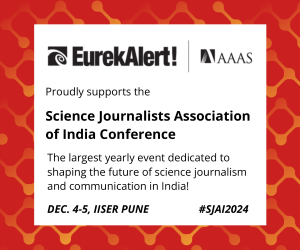Complaint Process and Procedures
NASW is required to handle any complaint in accordance with the process outlined in the NASW constitution and bylaws, Article VII, available at www.nasw.org/constitution-and-bylaws-national-association-science-writers-inc.
NASW’s complaint process is intended to support an inclusive organization that fosters the interpretation of science and its meaning to society, in keeping with the highest standards of journalism. The complaint process seeks to, in the areas and circumstances in which NASW is able, reduce harms to individuals, to the community, to the organization, and to the field via a deliberate, fact-based decision-making process that was developed and approved by members. This multi-step process is likely to proceed slowly over the course of months rather than days due to a variety of factors, including its nature and the reliance on volunteers. Those administering the process do so with as much alacrity as circumstances allow, many of which are not under NASW’s control. Those participating in administering the complaint process on behalf of NASW are committed to upholding the integrity of the process, including the provision that complaints remain confidential to the extent allowed by circumstances or the law, consistent with NASW’s need to investigate, correct, and prevent misconduct.
If one or more members of the Association (the “Reporter”) believes in good faith that the conduct of a member (the “Subject”) is substantially prejudicial to the best interests of the Association, the Reporter may deliver a signed, written complaint (a “Complaint”) to the Executive Director or to any Board member (the “Administrator”). Substantially prejudicial conduct may include, but is not limited to, actions contrary to NASW’s Code of Ethics, Operating Principles, or Conference and Meeting Code of Conduct.
Complaints may be submitted by someone who is directly affected or who is indirectly affected by the conduct at issue. Third-party complaints are permitted by those with direct knowledge of the circumstances (e.g., a bystander, witness, or someone else who knows of the conduct via a news report or other means). Only one member is required to submit a complaint. Direct knowledge possessed by others may be shared in any investigation, though an additional Reporter(s) with direct knowledge may be listed. Complaints may be submitted by non-members and will be considered per Article VII, Section 4b.
The Complaint should contain
-
The name of the individual (s) submitting the allegation, i.e. the Reporter(s).
-
The name of the member(s) alleged to have committed the substantially prejudicial conduct, i.e. the Subject(s).
-
A description of the allegation that includes the date(s) and circumstances of the alleged substantially prejudicial conduct.
-
Any documents or other relevant items (such as screenshots, etc.) with annotation specifying how the document or item relates to the allegation.
-
A written explanation of how the allegation relates to substantially prejudicial conduct as noted above.
-
If applicable: A statement explaining any conflict(s) of interest the person(s) making the allegation has with the Subject(s), entity(ies), or situation(s) named in the allegation. A conflict of interest does NOT preclude the filing of an allegation.
Complaints should be emailed to NASW’s Executive Director, director@nasw.org, or to any current Board member.
What happens after a complaint is received?
Convening of the Review Committee
Upon submission of a complaint, any conflicts, or perceived conflicts, of interest are determined. The names of the Reporter(s) and Subject(s) (not the complaint itself) are shared with the Board and Standing Ethics Committee members.
Some examples* for recusal include:
● The specific target
● The alleged Subject
● Close friends with Reporter(s) and/or Subject(s)
● Business partners with Reporter(s) and/or Subject(s)
● Romantic partners with Reporter(s) and/or Subject(s)
● In a family relationship with Reporter(s) and/or Subject(s)
● In some hierarchical academic or business relationship with Reporter(s) and/or Subject(s)
● Engaged in a significant and personal conflict with Reporter(s) and/or Subject(s)
● In some other significant power relationship with any of the Reporter(s) and/or Subject(s)
*= These examples and framing are adapted from “How to Respond to Code of Conflict Reports” by Valeria Aurora and Mary Gardiner(Frame Shift Consulting LLC, 2018)
While the names of Board members and Standing Ethics Committee members are known to NASW members, the identities of those on any particular Review Committee are confidential.
Preliminary Investigation
Once that assessment is complete, a preliminary investigation by the Review Committee will consider the existence of a credible question(s) that concerns whether a person engaged in particular conduct—or whether particular conduct is unprofessional and unethical—or both. Typically, for a credible question to exist, there would be enough facts known to NASW to warrant proceeding and conducting an informal or formal review of the questioned conduct and whether the facts are true, accurate, and complete. A credible question does not represent a conclusion about any person.
It is important to note that by accepting submission of complaints, investigating complaints, or by imposing temporary measures based on a credible question of professional and ethical conduct alleging a violation of any applicable policies, NASW is not making a judgment that the Subject(s) violated any policy and any statement or action to the contrary is not authorized by NASW. In these circumstances, before fact-finding is completed, NASW prioritizes preventative safety measures in the interest of the Association’s mission and the many it serves, over the interests of one or a few, if the two sides must be weighed.
Full investigation
After the preliminary investigation, the Review Committee will make a recommendation to the Board about whether or not to proceed with a full investigation. If the decision is made to proceed, the full investigation may include contacting some or all of the Reporter(s), Subject(s), and/or witness(es) in an effort to determine, per the process, whether facts are true, accurate, and complete. The time required to conduct a full investigation will vary. Those administering the process do so with as much alacrity as circumstances allow, many of which are not under NASW’s control. If no decision is made to proceed to a full investigation, the process ends here.
Notice to Subject
In this multistep process, the Subject(s) may learn about a complaint either during the full investigation or with the Notice of Complaint. This provision is intended to protect the safety and privacy of all involved in a complaint.
After the full investigation, the Review Committee votes on whether or not to proceed with the complaint. If the vote is to proceed, they will draft a Notice of Complaint, which should include sufficient detail for the Subject(s) to mount a defense. If the Board approves the Notice of Complaint, the Board sends a copy of such notice to the Subject. The Notice of Complaint is a confidential document intended only for the Subject(s) to which it is provided. It is intended to provide enough information for the Subject to mount a defense via their formal Response to the Board (defined below) and preserve as much confidentiality as possible for those involved. Where possible it relies on the least sensitive information gathered in an investigation. The Notice of Complaint may have some or all identifying information removed where privacy is warranted as long as sufficient detail remains for the Subject(s) to mount a defense. In most cases, the Notice will differ significantly from the initially submitted complaint. The Reporter's original submission is generally not appended to the Notice nor provided to the Subject. The Notice will also provide instructions for preparing a Response to the Board, should the Subject wish to do so.
Response
A Subject may choose to submit a formal written response (the “Response”) or schedule a hearing before the Board. A Subject’s Response or hearing is important to the Board for determining next steps, including any potential sanctions. A Response should state whether the Subject accepts, fully or partially, or denies each of the finding(s) listed. If the Subject denies the finding(s) in full or in part, they should provide the reason(s) for doing so and factual support.
After such hearing or receipt by the Board of the Response, or, if the Subject does not submit a Response or request a hearing within 30 days from the date of the Notice of Complaint after good faith efforts by the Board to make contact with the Subject, barring emergency circumstances, the Board will discuss and vote on a proposed sanction. An affirmative vote by no fewer than two-thirds of the Board members who are present at the time of a vote and who are not Conflicted Members, if a quorum is present at such time, is required to sanction a member or terminate membership. The Board will consider the Response and must notify the Subject of its decision and any sanction(s) (the “Notice of Decision”) within 14 days of the hearing, of the Board’s receipt of the Response, or of the close of the 30-day period from the date of the Notice of Complaint, whichever is applicable. The Notice of Decision will include instructions for appeal if the Subject(s) so choose.
Regarding sanctions, the only sanctions NASW, as a professional society, has are such matters as the conferral/removal of honors and awards and, ultimately, the termination of a member’s membership. We do not have the power to enforce outside the reach of our policies, events, platforms, or membership. While we strive to reduce harm to individuals, to the community, and to the organization, NASW is a professional society and not a court of law or employer, so our reach is limited.
Options for Appeal of any Decision
Upon receipt of the Notice of Decision, the Subject shall have 14 days to appeal the Board’s decision in writing to the Review Committee with reasons for the appeal, which must include new evidence or extenuating circumstances. If the Subject does not appeal, such decision by the Board and any sanction(s) shall be deemed to take effect as of the date of the Notice of Decision. If the Subject does appeal, the Review Committee will investigate the appeal and make a recommendation to the Board, within 14 days of the Review Committee’s receipt of such appeal, to uphold, amend, or remove the sanction(s). Upon receipt of the Review Committee’s recommendation, the Board shall determine whether to amend or remove the sanction(s). An affirmative vote by no fewer than two-thirds of the Board members who are present at the time of a vote and who are not Conflicted Members, if a quorum is present at such time, shall be required to amend or remove the sanction(s). If the Board does not vote to amend or remove the sanction(s), the Board’s decision and any sanction(s) set forth in the Notice of Decision shall stand. The Board shall notify the Subject of the Board’s decision on the appeal (the “Notice of Decision on Appeal”) within 14 days of such Board vote. Such decision by the Board shall be final and shall take effect immediately upon the date of the Notice of Decision on Appeal.
Confidentiality
The concept of confidentiality is critical. We have had the opportunity to support this principle, defending the confidentiality of all involved in any past, present, or future complaint by filing a successful objection to a subpoena that NASW received in 2020. This objection required significant amounts of time and financial resources from our volunteers and sole staff member, precluding progress on other NASW activities, but it was critical to stand up for the integrity of our process.
Those participating in administering the complaint process on behalf of NASW are committed to upholding the integrity of the process, including the provision that complaints remain confidential to the extent allowed by circumstances or the law, consistent with NASW’s need to investigate, correct, and prevent misconduct. Standing Ethics Committee members, Review Committee members, and Board members will not share any information regarding any complaint outside of the process.
In addition to the confidentiality demanded of those administering the process, anyone who receives information as part of an NASW investigation, including the status of any complaint, must maintain its confidentiality; failure to do so is a serious violation of the integrity of the complaint process. Anyone contacted as part of an investigation is provided notification of this provision in writing. Anyone contacted as part of an investigation is also notified that retaliation against any identified individual target, witness, or anyone who raises or helps resolve a conduct concern is a serious violation of the complaint process. Examples of retaliation can include, but are not limited to, threats or incitement of violence, harassment - including continued one-on-one communication after a request to cease - and verbal or physical abuse.
The Notice of Complaint is strictly confidential and may not be distributed, circulated or otherwise shared or transmitted. It contains sensitive information about individuals and about the complaint process. It is provided to the Subject(s), and may be used by the Subject(s), only for the purpose of preparing a Response should they wish to do so. Failure to comply with this confidentiality requirement is a serious violation of the integrity of the complaint process and viewed as conduct substantially prejudicial to the purposes and interests of the Association and as a basis for sanctions.
We’d like to be clear that confidentiality does not prevent those involved in initiating a complaint from sharing their own, personal and direct knowledge via other avenues. For instance, an assault victim must be free to file both a report with law enforcement and a complaint with NASW if they so choose. Nor can a Reporter(s) and Subject(s) be under gag order, prevented from talking about their personal experiences with a complaint process. Participants must be acutely aware, however, that any information they share is not information they have received from NASW or as part of NASW’s complaint process. Absolutely no part of the complaint process is intended to supersede personal safety nor prevent anyone involved from engaging in contact with the appropriate authorities when their personal safety is at risk.
For reasons of privacy, NASW members should not expect to see a full reporting of results or summaries of any complaints administered. In most cases, a simple, annual tally with aggregate status (3 in-process, 2 closed, etc.) will be offered without any identifying information. In some cases, a statement to membership may be warranted at the conclusion of a specific complaint process. Reporter(s) will be notified of the general resolution of their complaint once the process is completed.
From time to time, NASW members, via means beyond NASW’s control, may be aware that a complaint is in process. Complaints are not meant to be subject to the court of public opinion and posting or discussion of a complaint or confidential materials outside of the process shows disregard for the privacy of all individuals involved and the complaint process itself. Such disregard can perpetuate a chilling effect on submission of future complaints, and, as a result, the community’s efforts to build an inclusive organization.
The full complaint process is outlined in NASW’s bylaws: www.nasw.org/constitution-and-bylaws-national-association-science-writers-inc.
This information was developed in part with a model policy developed and copyrighted by the American Association for the Advancement of Science for the benefit of and sponsored by the Societies Consortium on Sexual Harassment In STEMM; original created by EducationCounsel LLC. This does not imply that the American Association for the Advancement of Science, EducationCounsel LLC, or the Consortium endorse its use or any changes made.



